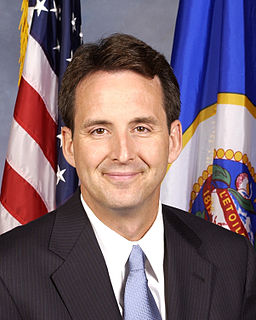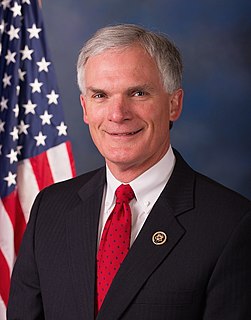A Quote by Tony Benn
It is government policy to phase out subsidies to nationalised industries. In line with this, the government hopes that the coal industry will be able to operate without the need for assistance apart from social grants.
Related Quotes
If the World War [I] demonstrated anything it was that government ownership is fraught with the gravest dangers and usually leads to disaster. Take Britain. The two problems which have caused the greatest trouble since the war ended have been transportation and coal. The government seized both industries when the war broke out. It got them into such a hopeless mess that it does not know how to turn [In] coal; the government now realizes, it took hold of the tail of a wild animal and is afraid to let go.
Subsidies for the oil, gas and coal industries are projected to cost taxpayers more than $135 billion in the coming decade. At a time when scientists tell us we need to reduce carbon pollution to prevent catastrophic climate change, it is absurd to provide massive subsidies that pad fossil-fuel companies' already enormous profits.
...what about the millions of poor in this country who desperately need assistance and services to help bring them out of poverty? Shall they go to the back of the line? and shall those who have made a dramatic illegal entry, who would normally not be entitled to government assistance, or even entry itself, be put at the front?
The analysis in the era of Ronald Reagan and Margaret Thatcher was that government was interfering with the efficiency of the economy through protectionism, government subsidies, and government ownership. Once the government "got out of the way," private markets would allocate resources efficiently and generate robust growth. Development would simply come.
The industries closest to Google - media, advertising, and entertainment - are affected first. But the avalanche that is Google and the internet will overtake all industries and institutions - carmakers, bankers, universities, government - as we undergo a fundamental restructuring of the economy and society. Every industry and institution would be wise to understand the need for handing over control, for transparency, for collaboration and speed.
The U.S. government doesn't build your computers, nor do you fly aboard a U.S. government owned and operated airline. Private industry routinely takes technologies pioneered by the government and turns them into cheap, reliable and robust industries. This has happened in aviation, air mail, computers, and the Internet.
The oil industry is hardly free to operate as efficiently as it could or to be as responsive to consumer demands as it would like. It has become, in essence, a quasi-state-run enterprise, because it cannot drill, transport, refine, and store fuel without receiving government permission, complying with government regulations, and paying taxes at every level or production.
I think if you look at Medicare and Medicaid, the premise was that government needs to provide some assistance to people who aren't able to take care of themselves. I think we all share that goal, Republicans and Democrats. I don't think anybody's gonna go back now and say, Let's abolish, or reduce, Medicare and Medicaid. But as we confront the challenges and the responsibilities of our time - from here on - how do we serve more people or different people who are in need of financial assistance? Just forever having the government expand to address all of that seems unwise.
Government, not the oil industry, is the biggest 'profiteer' from oil. And it uses the tax revenue to expand its own authority at the expense of the individual, as it does with an endless number of other industries - including electric power, coal, lumber, pharmaceuticals, automobiles, aircraft, and agriculture. The Statist's intrusion to the free market is boundless.






























